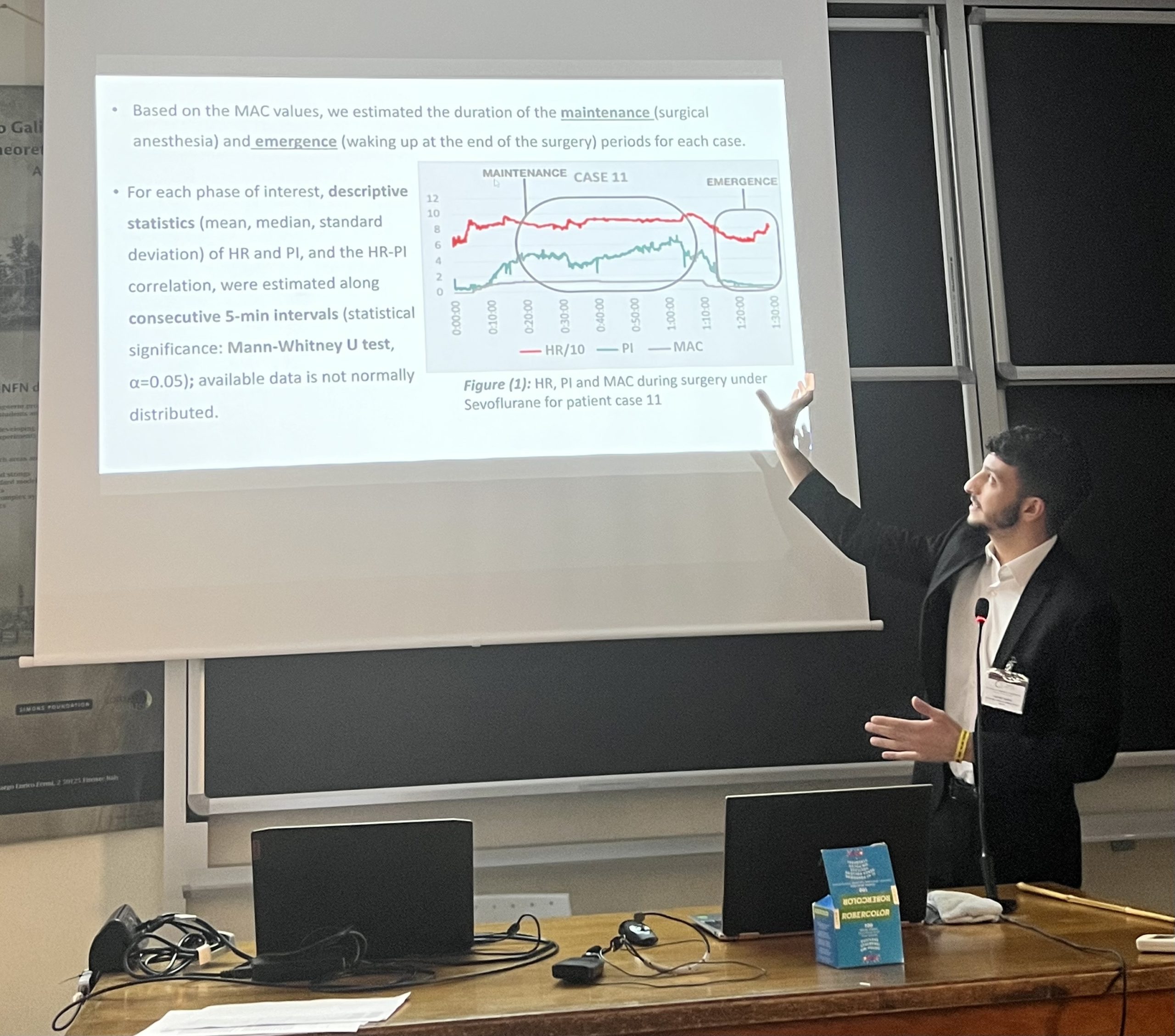Yousef Kordi, a sixth-year medical student of the MD6 programme, presented his work on the “Effect of sevoflurane on cardiovascular activity at maintenance and emergence from anaesthesia during surgery” at the 2022 IEEE Workshop.
His work, which was conducted during his fourth year as part of the MED-405 Research Project course and was supervised by Dr Nicoletta Nicolaou, was accepted for oral presentation at the International Workshop on Computational Complexity in Engineering (COMPENG) of the Institute of Electrical and Electronics Engineers (IEEE). Yousef participation in COMPENG 2022 which was held in Florence, Italy between 18 and 20 July 2022, was funded by the Medical School’s Student Conference Award Programme. This was an exciting opportunity for Yousef, as COMPENG hosts experts and professionals who work on the latest developments in complexity science, and its application from an engineering perspective.
I found it very fascinating. I had the chance to get involved in a process that binds medicine together with engineering. It’s interesting to see things from a different viewpoint! As an MD student, I had the opportunity to learn about the theory of how everything works, from the perspective of neuroscientists/ biomedical engineers, and how they come up with the mathematical models, something that supports the theories we have learned as part of our curriculum; in the end, it’s all working synergistically”, Yousef stated.

Yousef’s study investigated the effect of sevoflurane, an inhalational anaesthetic agent, on cardiovascular activity (pulse and perfusion index) during the maintenance and emergence periods of surgery. The data was obtained from a publicly available dataset by the University of Queensland, which contains patient monitoring data and vital signs recorded during surgery under general anaesthesia. Based on specific exclusion criteria, including the type of anaesthetic agent, the data selected came from 11 patients. Statistical analyses for perfusion index and heart rate were performed for each case, during maintenance (under maximal anaesthetic effect), and emergence (at the end of surgery when waking up). The results show a non-significant reduction in the heart rate and a significant decrease in the perfusion index during the emergence phase, compared to the maintenance phase. Perfusion index and heart rate were not significantly correlated during anaesthetic maintenance or emergence from anaesthesia. These results suggest that sevoflurane significantly increases blood flow during anaesthesia, but does not appear to have a significant effect on heart rate.

